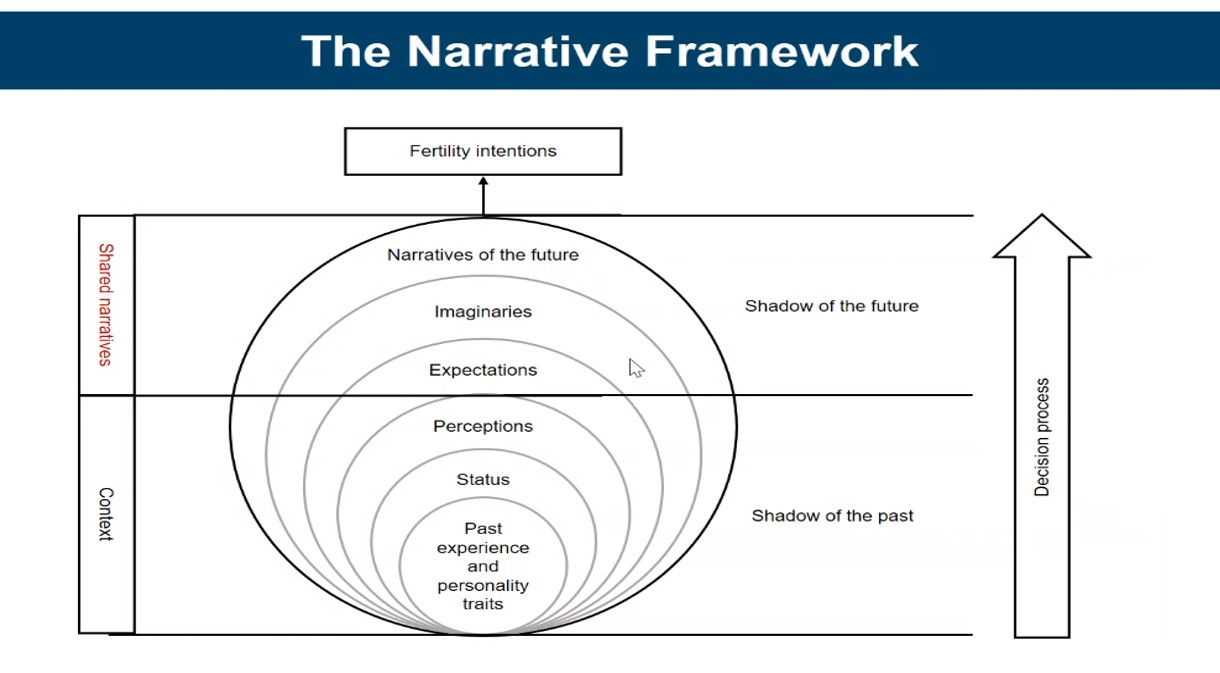The pandemic and increased uncertainty: what effects on fertility?
The FBK-IRVAPP research center hosted a seminar on this topic with Raffaele GUETTO, researcher at the University of Florence, who described how the narratives conveyed by the media significantly affect reproductive intentions, changing demographic scenarios
Monday, December 14, 2020, the italian Prime Minister’s Office Department for Family Policies presented the results of the report investigating the consequences of the pandemic on births, on the realization of young people’s life projects and on the well-being levels of families with children and adolescents. The report was drafted by the group of experts on demography and COVID-19, set up by Minister Elena Bonetti in April 2020 and coordinated by prof. Alessandro Rosina. This is the first public product of the work carried out, made available together with constant updates through data, reports on ongoing research, findings.
“Demography – explained Alessandro Rosina, full professor of demography and social statistics at the Catholic University of the Sacred Heart of Milan and coordinator of the Research Group – is one of the main areas affected by the pandemic, both for the direct impact on increased mortality, and for the indirect consequences on people’s life plans. Moreover, as we all know, the situation in our country has been particularly fragile and problematic on this front for a long time. The greater aging of the population has exposed us to greater lethality rates. The fragile training and professional paths of young people in Italy (especially if they come from families with medium-low social status), the limited life-work balance options (especially on the female side), the high incidence of poverty for families with children (especially beyond the second child), in addition to the repercussions of the health crisis, risk to compromise even more the choice of starting their own family or having a/another child. The increased sense of uncertainty contributes to this trend as well. On the one hand, pre-Covid-19 levels on this set of indicators cannot be considered a positive normality to return to. On the other hand, the consequences of the impact of the health crisis cannot be taken for granted and could lead – as already happened with the 2008-13 recession – to a downward adjustment that would exacerbate in irreversible ways demographic imbalances incompatible with a strong future our country”.
On those same days, the FBK-IRVAPP research center hosted Raffaele Guetto (Ph.D. in Sociology and Social Research, tenure-track Assistant Professor of Demography at the University of Florence), who presented, starting from quantitative evidence, a detailed picture of the determinants of changes in behavior regarding the intention to build life projects in Italy, in light of the Covid19 pandemic. In particular, he highlighted the role of the media and the power of narratives that exert a huge influence on private decisions and on the demographic trend of the country. Please see his presentation.

Abstract: The generalized and relatively homogeneous fertility decline across European countries in the aftermath of the Great Recession poses serious challenges to our knowledge of contemporary low fertility patterns. The rise of economic uncertainty has often been identified, in the sociological and demographic literatures, as the main cause of this state of affair. The forces of uncertainty have been traditionally operationalized through objective indicators of individuals’ actual and past labor market situation – the “shadow of the past”. However, uncertainty primarily means a lack of clarity about future prospects. Rising uncertainty in contemporary societies, thus, necessitates an analytical framework that acknowledges the influence of the future in the fertility decision-making process. Based on the Narrative Framework, we argue that personal narratives of the future, and their constitutive elements of expectations and imaginaries – the “shadow of the future” – represent crucial drivers of fertility intentions under conditions of uncertainty. Our arguments are tested empirically by exploiting the exogenous uncertainty shock provided by the COVID-19 pandemic, and unique data we collected during the Italian lockdown. Results suggest that, because of COVID-induced uncertainty, subjective perceptions and personal narratives of the future – also shaped by media-channeled narratives – gain the upper hand over the shadow of the past in influencing fertility intentions. In addition, we provide evidence of a causal impact of narratives of the future on fertility intentions through an online experiment simulating a “real” exposition of the respondents to a new media narrative on the expected length of the emergency.

